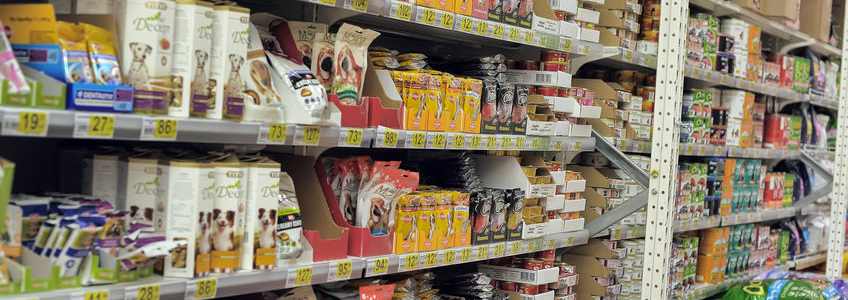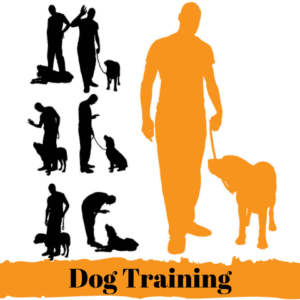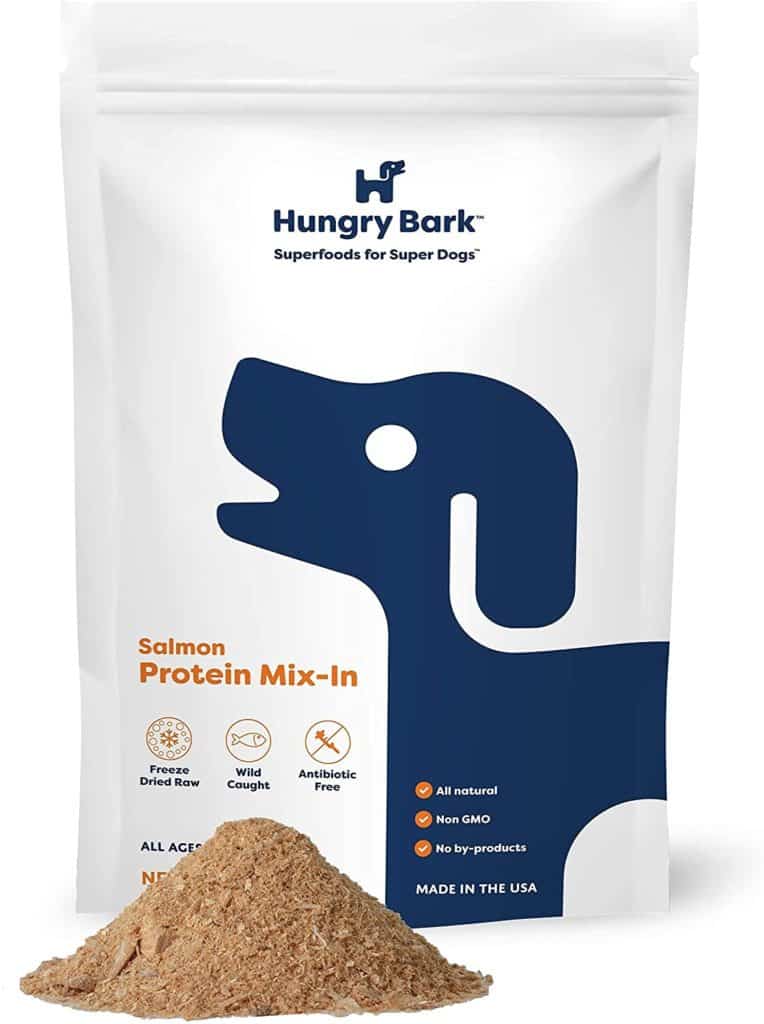In this article, we talk about what you need to know about your dogs nutrition. A healthy dog is a happy dog; if you want to keep your dog healthy, you must ensure that your dog has a balanced and nutritious diet.
It’s vital to educate yourself, and when in doubt, even consult your veterinarian about what your dog must be eating.
After all, balanced nutrition does not happen by accident.
Each nutrient in your dog’s food serves a purpose. Without proper nutrition, your dog will have difficulties maintaining its muscle tone, performing normal daily activities, fighting infection and building, as well as repairing teeth and bones.

Why is Nutrition Important for Dogs?
Dog owners want nothing but the best for their dogs, and we want to give them a long, happy, and healthy life. A good start is feeding them healthy and balanced meals.
It’s important to know that like humans, dogs are unique, and food that’s great for your neighbor’s dog might not work for yours.
Before you go through the many dog food options, you need to understand your dogs nutritional needs. If you have a new puppy, you need to choose dog food formulated for young and growing pups.
The same thing goes for large breeds; they need food specifically made for them. Another thing to look out for on the label is the words “complete and balanced.” The FDA uses this to regulate pet food nutrient profiles established by the Association of American Feed Control Officials.
Your dog needs a mix of the following in their diet to stay healthy:
- Carbohydrates – Carbs are from vegetables and grains, and they provide sugars, fiber, and starches. They not only keep your dog’s intestines healthy, but they also power the tissues in your dog’s body.
- Fats – fats provide your dog with energy. They also keep your dog’s hair and skin healthy. Dogs can’t make enough essential fatty acids such as omega-3, omega-6, and linoleic acid, on their own, so they need to get it from their food.
- Proteins – proteins are the building blocks of body tissues. Dogs can only make only 13 out of 23 amino acids, so they need to get the rest from food.
- Vitamins and minerals – vitamins and minerals, such as calcium, B-complex vitamins, phosphorous, and Vitamins A, D, E, and K, help build strong bones.
- Water – water is essential for the survival and health of any living thing, including dogs. Canned dog food may have a lot of water in it, but it’s not enough, so you have to make sure that you have clean and fresh water always available for your dog.
My Dog Has Lost Appetite: Should I Be Concerned?
One day, your dog is happily enjoying its food, and then it suddenly refuses to eat. Is this a cause for concern?
A pet that consumes very little food or doesn’t eat at all because of stress or an upset stomach may regain its appetite within 24 hours.
But, losing appetite for more than 1-2 days can be a sign of medical issues and should not be left untreated.
When your dog suddenly loses its appetite, it’s only natural to be concerned and wonder why.
Since speech is something canines lack, you have to observe your dog and check out tell-tale signs that show what they may be feeling.
It’s essential to learn the most common, as well as the lesser-known reasons, why dogs suddenly lose their appetite. If it has been more than two days since your dog has eaten, it is time to take things seriously and discover why.
Observe Your Dog’s Behavior
Does your dog refuse to eat particular types of food, or does it refuse to eat anything at all?
Check your dog’s food intake. Is your dog behaving like it usually does, or is there any change to its routine?
Please pay special attention to its urine and stool. If your dog is lethargic, dehydrated, vomiting, or suffering from diarrhea, you need to take it to the vet immediately.
If your dog is sleeping all day, losing interest in other activities, or is usually hiding, it could be suffering from dog depression. Bring this to the vet’s attention.
Check Your Dog’s Teeth and Body
A common cause for loss of appetite is bad teeth and inflamed gums.
Aside from checking its mouth, you also need to check your dog’s body for signs of parasites, such as lumps, injuries, and changes in the skin and fur. If you find anything suspicious, call the vet immediately.
Related article: How to Prevent Dental Disease in Dogs
Inspect your dog for fleas, which can also cause a dog to lose appetite.
Related article: My Dog Has Fleas What Can I Do
Check the Dog’s Environment
Another possible reason your dog has suddenly stopped eating could be because it has gotten its paws on something that it shouldn’t.
Has any of your houseplants been missing?
Are some of the toys missing their parts?
Check the areas where your four-legged friend has access. If anything is missing and your dog is having diarrhea or vomiting, don’t waste any time and consult a vet immediately.
If you and your dog have recently moved, Your dog’s loss of appetite could be due to a new environment, and he could still be adjusting.
Check the Food for Issues
If your dog refuses to eat the food you’re serving, there might be something wrong with it.
Ensure that it’s not expired, and check the color and smell. If you think that the food is spoiled, open a fresh new pack and give it to Fido.
Have Been Treating Your Dog
Have you been giving your dog a few treats between meals?
If that’s the case, this may explain why your dog lacks appetite during mealtimes.
Or your dog may be waiting for something tastier, and he’s refusing to eat his regular food.
If you are training your dog and are using treats to reward your dog for good behavior and training results, you have to reduce the amount of food you feed your dog at mealtimes.
You also need to be mindful that if the treats are too flavorsome, your dog may not want his/her normal food.
How to Deal with Picky Eaters?
When it comes to food, there are only two types of dogs: dogs that live to eat and dogs that eat to live.
Those that belong to the first group want nothing else to do but eat, and they will devour anything you put in front of them.
The second group picks and chooses their food, and if they don’t like it, they will leave the food alone.
Here are some practical tips to encourage your picky eater dog to develop healthier eating habits.
Stick to a Schedule
Feed your pup two to three times daily or as directed by your veterinarian. As your puppy grows, you can gradually increase the volume of food while decreasing the frequency of feedings.
Adult dogs must be fed one or two times daily. You can also use a measuring cup to ensure you give your dog equal portions. Remember that consistency is important for canines.
Start Early
Before bringing a young pup home, you must devise a feeding plan. Everyone in the family must be on the same page when it comes to feeding the dog.
If there is a possibility of providing people food, discuss it with the entire family. Remember to mix in some healthy options, such as low-fat vegetables with kibble.
Never Feed From the Table
Refrain from doling out table scraps because this can result in your dog avoiding canned or dry dog food, and they will hold out for more salivating options.
Furthermore, this can cause several health problems, such as diarrhea and pancreatitis, and may also reinforce begging.
Keep People Food and Dog Food Separate
Do not let your dog associate your food with their food.
There must be a distinction between the two because if the lines between the two are blurred, your dog will start thinking that they can not only eat their food but also yours.
Your dog should only eat from the dog’s bowl and never be fed food from your plate.
3 Ways To Make Your Dog Eat Their Food
Sometimes, you will never know why your dog stopped eating, but as long as they are eating again, there is not much we can do or worry about.
Other times, the reason a dog stopped eating, while not always immediately obvious, can be treated and nurtured back to normal eating habits.
A dog recovering from an illness or injury, such as arthritis or a broken tooth, may take time to regain their appetite.
1) Feed Your Dog Top Quality Food
There is a saying, “You are what you eat,” and the same goes for your dog. So always feed your dog the best food your budget will allow.
While it is not always the case, the more expensive the dog food the better the nutritional content. So if your dog is recovering from an illness or injury give them dog food that is high in vitamins and nutrients, made from fresh ingredients, to help them recover to optimum health.
2) Stimulate a Dogs Appetite with a Protein Topping
Dogs respond well to smell, so stimulate your dog’s appetite by adding a protein topper that enhances the smell and taste of your dog’s food.
Hungry barks Protein Mix-ins add protein and boost the flavor of dog food that entices your dog to eat more – so use as directed.
3) Settle Your Dogs Stomach with Probiotics
A good way to settle a dog’s upset digestive system or sensitive stomach is by using a probiotic supplement.
Note: The content on this website is not intended to be a substitute for professional veterinary advice, diagnosis, or treatment. Please seek the advice of your veterinarian with any questions you may have about your dog’s health and dietary requirements. Never disregard the advice of your veterinarian or delay in seeking it because of something you have read on this Website.
Related topic:
What is the healthiest food to feed your dog?
This is a very good question. However, it is beyond the scope of this article and I have covered it in the following articles:
5 Reasons to Switch Your Dog to a Raw Food Diet
What Makes A Dog Food Good According To Veterinarians
Benefits of Homemade Dog Food Include Knowing What’s In It


